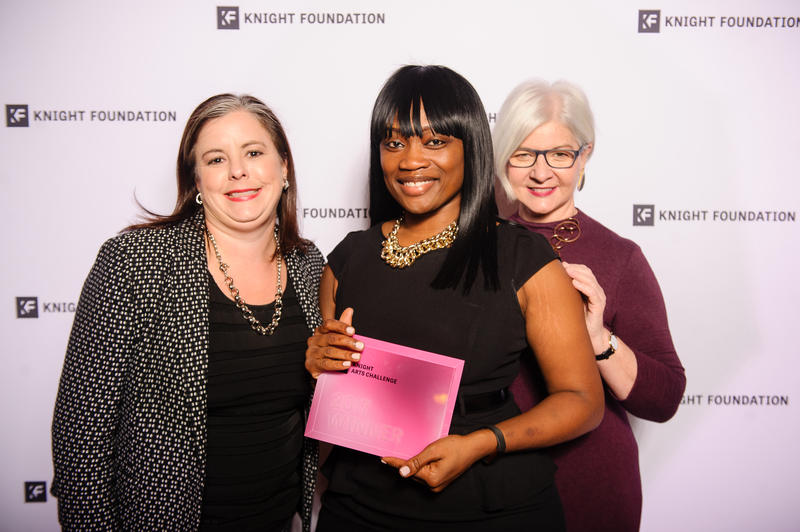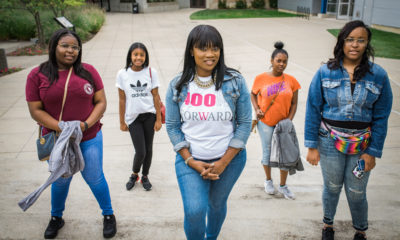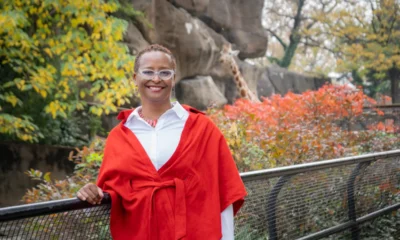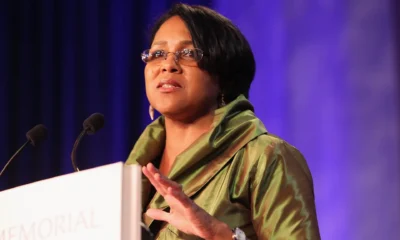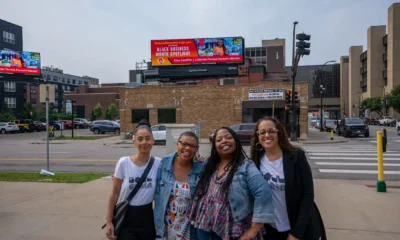Black Women in Business
Only .3% of architects are black women. One Detroit designer aims to change that.
There’s so much renovation and new development happening in Detroit. But how many of the people designing these spaces are the people who will end up using them?
That’s the question that drives Tiffany Brown.
She is an architectural designer who won a 2017 Knight Arts Challenge grant for her idea to bring more black girls and women into the field of architecture and urban planning. Her winning project is called 400 Forward.
Brown joined Stateside to talk about the future of diversity in architecture and urban planning.
Listen above for the full conversation, or read highlights below.
On how Brown entered architecture
Brown grew up on the west side of Detroit where few professionals came to advertise their careers. She found herself drawing constantly and fell in love with art. She also took a woodshop class in high school, and when a recruiter for Lawrence Tech spoke at an assembly, she became interested in pursuing architecture there.
“I try to be the face that I was looking for growing up,” Brown said. “So if I go into a room or an auditorium and just one person is interested in architecture, then I’ve accomplished my mission.”
On her project 400 Forward
The name comes from a milestone this past August, when the 400th African-American woman became licensed as an architect. There are 110,000 licensed architects in the country.
“It’s a number that represents 0.3 percent, like not even a half a percent, of what the profession is,” said Brown. “That’s just not what our communities look like.”
400 Forward plans to boost the number of black women entering into architecture and urban planning careers. They expose black women to the field by going into Detroit schools and neighborhoods and discussing what it’s like to work as an architect or urban planner. They also provide financial support to assist with the costs of studying architecture and taking licensing exams.
On the importance of diversity in architecture and urban planning
“It’s a profession that is integrated into our daily lives: the built environment, the spaces that we use every day,” she said.
Detroit’s revitalization, for instance, is being led by companies that lack the diversity …
Please read original article- Only .3% of architects are black women. One Detroit designer aims to change that.



